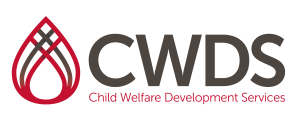CWDS Curriculum
Interviewing Children with Developmental Delays
Level: Advanced Practice – Lineworker
Credits: 6
Intended Audience: This training is intended for lineworkers who interview children as part of their normal practice and have attended, at a minimum, an advanced class on investigative interviewing of children
Intended Objectives:
- Students will understand the definitions and range of a variety of conditions which come under the heading of “developmental disabilities”.
- Students will understand the patterns of maltreatment and risk indicators among children in this population.
- Students will be able to describe language and communication issues among children in this population and how they can better prepare for the interview.
- Students will be able to describe how to modify or augment child investigative interviewing procedures to enhance the accuracy of communication with children in this population.
Topics Include:
- Definitions and range of a number of conditions which are considered “developmental disabilities.”
- Incidence of abuse and patterns of maltreatment among children diagnosed with a developmental delay.
- Risk indicators for children diagnosed with developmental delays.
- Disclosure issues for children in this population.
- Language, communication, and suggestibility issues with some children with developmental delays.
- Consent issues involving children with developmental disabilities.
- Interviewer preparation and interviewing strategies following an identified child interviewing protocol.
CalSWEC Competencies Addressed:
1.4 Student recognizes personal knowledge limitations regarding specific groups and seeks consultation and expertise as needed to assess and work effectively with clients.
3.1 Student is able to practice basic principals and techniques of interviewing children and families for purposes of assessment, intervention, and service planning.
3.5 Student demonstrates an understanding of basic child development and how developmental level affects a child’s perception of events, coping strategies, and physical and psychological responses to stress and trauma.
4.8 Student understands the requirements for effectively serving and making decisions regarding children with special needs, including the balancing of parental and child rights.
5.4 Student demonstrates understanding of the influence of culture on human behavior and family dynamics.
Posted In:Engagement & Interviewing



